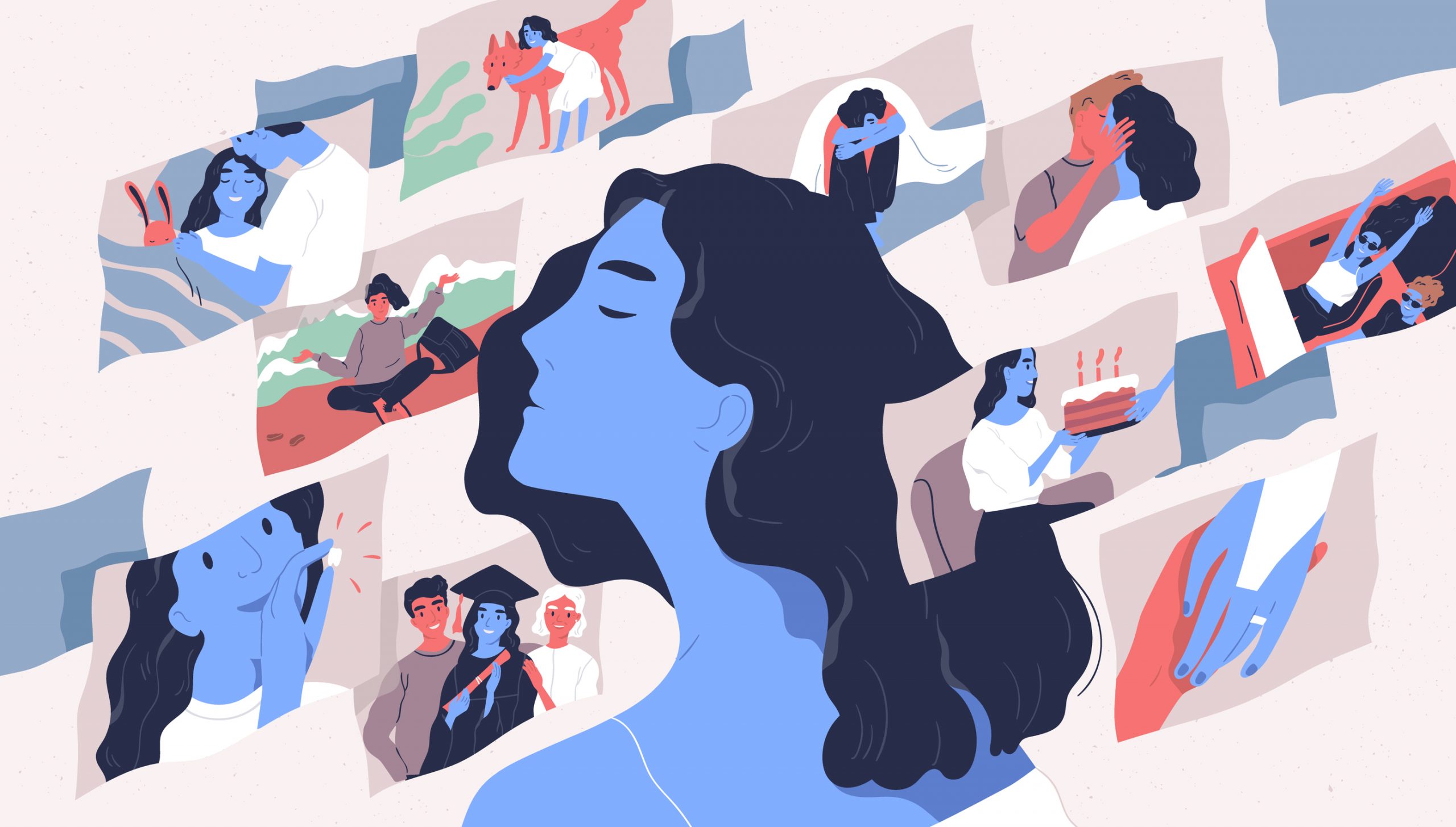
Memories have a powerful impact on our lives. They shape how we feel, how we act, and the choices we make. When painful memories emerge, it can be especially hard to shake the negative feelings that bubble up and the way they affect our quality of life.
A new study by the University of Alberta provides us simple ways to manage the level of emotional intensity that we experience when recalling past memories.
Researchers report that when we recall our memories from a third-person perspective we are able to decrease the emotional intensity of that memory. “Specifically, the results show that recalling memories from an observer-like perspective, instead of through your own eyes, leads to greater…interaction among brain regions that support our ability to recall the details of a memory and to recreate mental images in our mind’s eye.”
Not only does this third-person perspective allow us to recall memories with higher accuracy, but it also enables us to experience relief from troubling or even traumatic memories more successfully.
______________________________________________________________________
Do you want to overcome past hurts and live a whole, healed, and healthy life?
Check out Unworried—A Life Without Anxiety
______________________________________________________________________
Learning to decrease the emotional power of negative memories is especially important because it helps us overcome limiting “core beliefs.” Cognitive behavioral therapy defines core beliefs as central beliefs that people hold about themselves, others, and the world. These core beliefs then influence what CBT refers to as automatic thoughts—those thoughts or beliefs that seem to pop into our mind that shape our daily self-talk.
In addition to recalling our memories from a third person perspective to decrease their emotional power, here are three ways to re-story our core beliefs and develop healthy self-talk:
Label Thoughts—One of the best ways to get control of our self-talk is to label our thoughts as either helpful or hurtful. When we do this, we can learn to lean into helpful thoughts and let go of hurtful thoughts, just like we would listen to helpful advice from others and dismiss unhelpful advice.
Live Intentionally—When we live busy lives it’s easy for us to operate on “auto-pilot.” We go about our day moving through our tasks without really being present. But when we live in this more passive state, we are living more out of reaction rather than intentional action. Gain control over your negative feelings by being intentional about your actions and your self-talk. This can be as simple as changing your self-talk from “I have to go to work,” to, “I’m choosing to go to work because…(of this benefit I get from it).” Likewise, instead of saying “what is the day going to bring?” you might say, “what do I want to make happen today?” Living intentionally helps us regain control over our emotions and our lives.
Focus on Strengths—We often focus on what we didn’t do well or what we wish we could do better. However, this kind of thinking often leads to negative core beliefs and automatic thoughts. Instead, practice focusing on what you CAN do instead of what you can’t do. Make a point of acknowledging your successes throughout the day. Even in the face of hardships, identify the strengths that you displayed and give yourself credit. For example, did you have a positive conversation with your spouse, co-worker, kids, or friend? Acknowledge that as a success and identify, “I was thoughtful, respectful, empathetic, (etc.) in that conversation which helped me be successful.”
For more ways to re-story your core beliefs and self-talk, visit us online at CatholicCounselors.com


